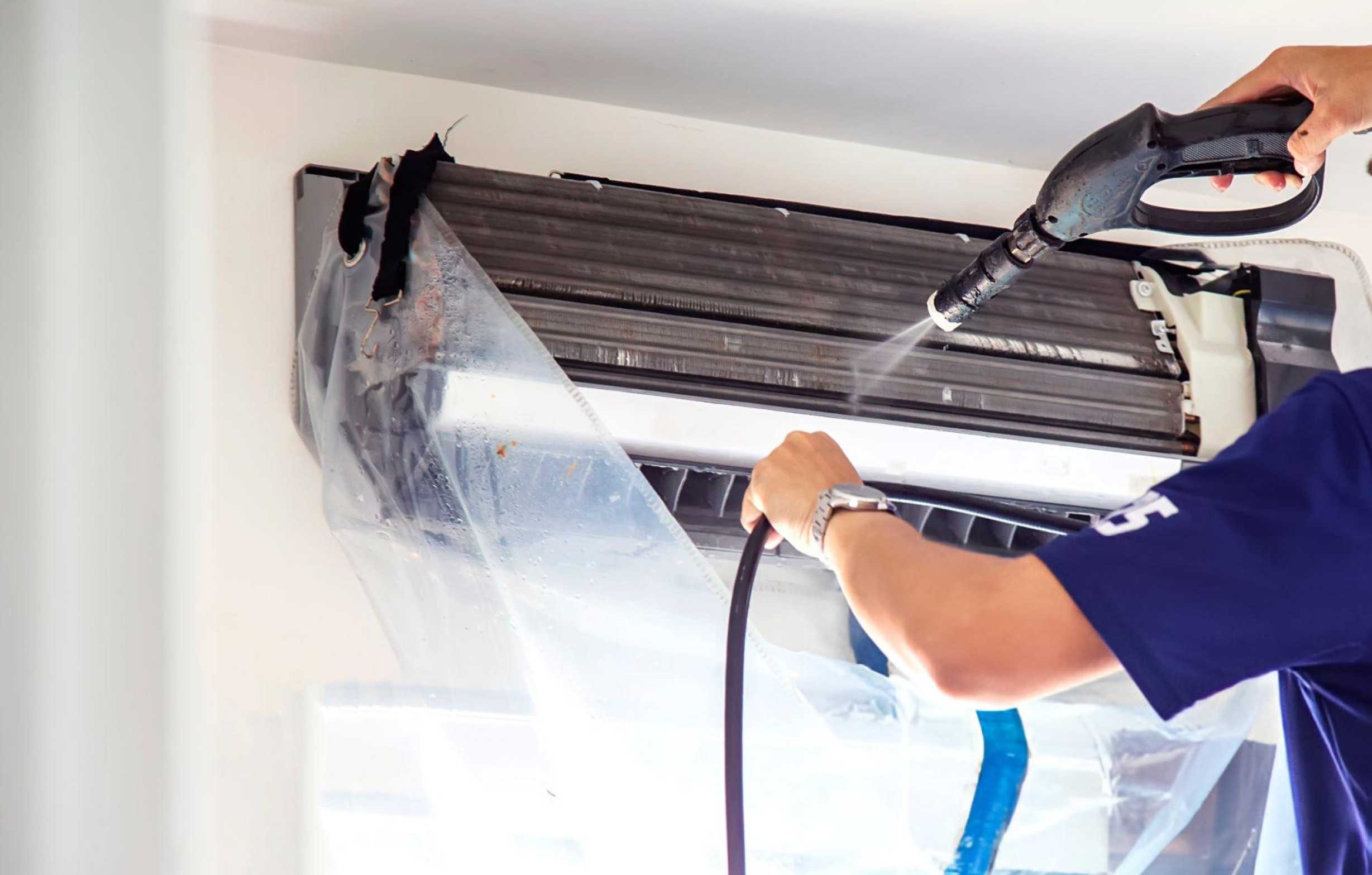Benefits of Regular HVAC Maintenance

Benefits of Regular HVAC Maintenance
Regular HVAC maintenance is more than just a recommendation; it’s a crucial aspect of home and business upkeep. Whether you rely on your HVAC system for comfort during extreme weather or for maintaining a healthy environment, scheduling consistent checkups is vital. This article delves into the core benefits of regular HVAC maintenance, exploring why every property owner should prioritize it.
Energy Efficiency and Cost Savings
One of the primary benefits of regular HVAC maintenance is the enhancement of energy efficiency. Over time, dust, debris, and wear-and-tear can cause your system to work harder, using more energy to maintain the desired temperature. When HVAC systems are routinely serviced, components such as filters, coils, and ducts are cleaned or replaced, ensuring smooth operation.
A well-maintained HVAC system reduces energy consumption, translating into lower utility bills. This can lead to significant long-term savings, particularly for businesses operating in larger spaces or homeowners dealing with extreme temperatures. Additionally, an efficient system reduces your carbon footprint, contributing to environmental sustainability.
Prolonged System Lifespan
Investing in regular HVAC maintenance helps extend the lifespan of your system. Without routine checks, minor issues such as clogged filters or worn belts can escalate into more serious problems, potentially leading to system breakdowns. By addressing these issues early, maintenance helps prevent costly repairs or even the need for premature replacement.
For homeowners and business owners, replacing an HVAC system is a significant investment. Proper maintenance allows you to maximize this investment by ensuring that your system runs smoothly for its full intended lifespan. Regular inspections and Tune-Ups keep everything in top shape, delaying the need for major overhauls.
Improved Air Quality
Indoor air quality is often overlooked but is directly tied to your HVAC system’s performance. The air circulating through your home or business passes through filters and ducts, picking up dust, allergens, and even mold if the system isn’t properly maintained. Regular HVAC maintenance ensures that filters are changed, and ducts are cleaned, improving the overall air quality.
Good air quality is particularly important for people with allergies, asthma, or other respiratory conditions. Businesses can also benefit by reducing absenteeism due to sickness, as clean air helps prevent the spread of germs and viruses. Proper HVAC maintenance keeps your indoor environment healthier and more comfortable for everyone.
Consistent Comfort Levels
Whether it’s the heat of summer or the chill of winter, your HVAC system plays a key role in maintaining consistent indoor comfort. Regular HVAC maintenance ensures that your system operates at peak performance, avoiding sudden temperature fluctuations and ensuring a balanced climate throughout your property.
A well-maintained system responds quickly to thermostat adjustments and delivers even air distribution across rooms. This level of consistency can make a significant difference, particularly in spaces that require precise temperature control, such as offices, restaurants, or healthcare facilities. By keeping up with maintenance, you ensure that comfort is never compromised.
Enhanced Safety
An often-overlooked benefit of regular HVAC maintenance is the added safety it provides. Gas and oil furnaces, in particular, pose risks if not properly maintained. Issues such as cracked heat exchangers or leaks can lead to dangerous situations, including carbon monoxide poisoning.
During routine maintenance, technicians check for potential hazards, ensuring that everything is operating safely. For businesses, this can help avoid liability issues, while homeowners gain peace of mind knowing that their family is safe from harmful leaks or malfunctions.
Lower Repair Costs
The old adage, “prevention is better than cure,” certainly applies to HVAC systems. Regular HVAC maintenance can catch small issues before they turn into major, costly repairs. For example, a technician might notice a fan that’s starting to wear out and replace it during a routine checkup, preventing the larger expense of replacing an entire motor down the road.
In addition, planned maintenance is typically more affordable than emergency repairs. Unexpected breakdowns often require urgent attention, leading to higher service fees and rushed decisions. By staying ahead with regular maintenance, you can budget more predictably for your HVAC expenses and avoid those unexpected hits to your wallet.
Compliance with Warranty Requirements
Many HVAC manufacturers include maintenance as part of their warranty terms. If you neglect regular maintenance, you might void your warranty, leaving you responsible for all repair and replacement costs. This is a significant consideration, especially when dealing with high-end systems.
Documented HVAC maintenance not only keeps your warranty intact but can also be useful when selling your property. Prospective buyers appreciate knowing that the HVAC system has been well-maintained and still falls under warranty, which can increase the value of your property.
Environmental Impact
The benefits of regular HVAC maintenance extend beyond immediate comfort and cost savings—they also contribute to environmental responsibility. An inefficient HVAC system uses more energy and can lead to higher greenhouse gas emissions. Regular Tune-Ups reduce energy waste, making your system greener and more sustainable.
For businesses aiming to adopt more eco-friendly practices, maintaining a well-functioning HVAC system is a step in the right direction. Homeowners can also do their part by ensuring that their systems run efficiently, minimizing their environmental footprint while enjoying the other benefits of regular HVAC maintenance.
Increased System Reliability
No one wants their HVAC system to fail during the peak of summer or the dead of winter. Regular HVAC maintenance reduces the likelihood of unexpected breakdowns by ensuring that all components are in good working order. By identifying and addressing issues early, you minimize the risk of system failures during times when you need your HVAC system the most.
In a business setting, downtime due to a faulty HVAC system can affect productivity and lead to lost revenue. Maintaining reliability through regular checks and servicing ensures that your operations run smoothly without disruption.
Peace of Mind
Perhaps the greatest benefit of regular HVAC maintenance is the peace of mind it offers. Knowing that your system is running efficiently, safely, and reliably allows you to focus on other priorities, whether it’s managing a business or enjoying time at home. You won’t be caught off guard by unexpected breakdowns, and you’ll enjoy a comfortable environment year-round.
For businesses, this peace of mind extends to clients and employees. A consistently comfortable indoor environment enhances customer experience and creates a better working atmosphere. Homeowners also benefit from reduced stress, knowing that their HVAC system won’t leave them stranded during extreme weather conditions.
Frequently Asked Questions (FAQs) About Regular HVAC Maintenance
Q: How often should HVAC maintenance be performed?
A: Ideally, HVAC maintenance should be scheduled twice a year: once in the spring for cooling systems and once in the fall for heating systems.
Q: What is included in a typical HVAC maintenance visit?
A: Maintenance typically includes cleaning filters, inspecting and lubricating parts, checking refrigerant levels, testing the thermostat, and inspecting ducts.
Q: Can regular HVAC maintenance really save money?
A: Yes, regular maintenance improves system efficiency, which reduces energy consumption and lowers utility bills.
Q: How does HVAC maintenance affect indoor air quality?
A: Regular maintenance involves changing filters and cleaning components, which helps reduce dust, allergens, and pollutants, improving indoor air quality.
Q: Is regular HVAC maintenance necessary for new systems?
A: Yes, even new systems need maintenance to prevent wear and tear, ensure optimal performance, and maintain warranty coverage.
Q: How long does an HVAC system typically last with regular maintenance?
A: With consistent care, HVAC systems can last 15-20 years, depending on the type and usage.
Q: Can I perform HVAC maintenance myself?
A: Basic tasks like changing filters can be done by homeowners, but professional maintenance is recommended for comprehensive checks.
Q: What are the risks of skipping HVAC maintenance?
A: Skipping maintenance can lead to reduced efficiency, higher energy bills, frequent breakdowns, and potentially voided warranties.
Q: Does HVAC maintenance help prevent carbon monoxide leaks?
A: Yes, part of maintenance involves checking heat exchangers and vents, which can prevent dangerous leaks in gas and oil systems.
Q: How do I choose a reliable HVAC maintenance provider?
A: Look for certified technicians, check reviews, ask for references, and verify that the provider offers comprehensive services tailored to your system’s needs.





